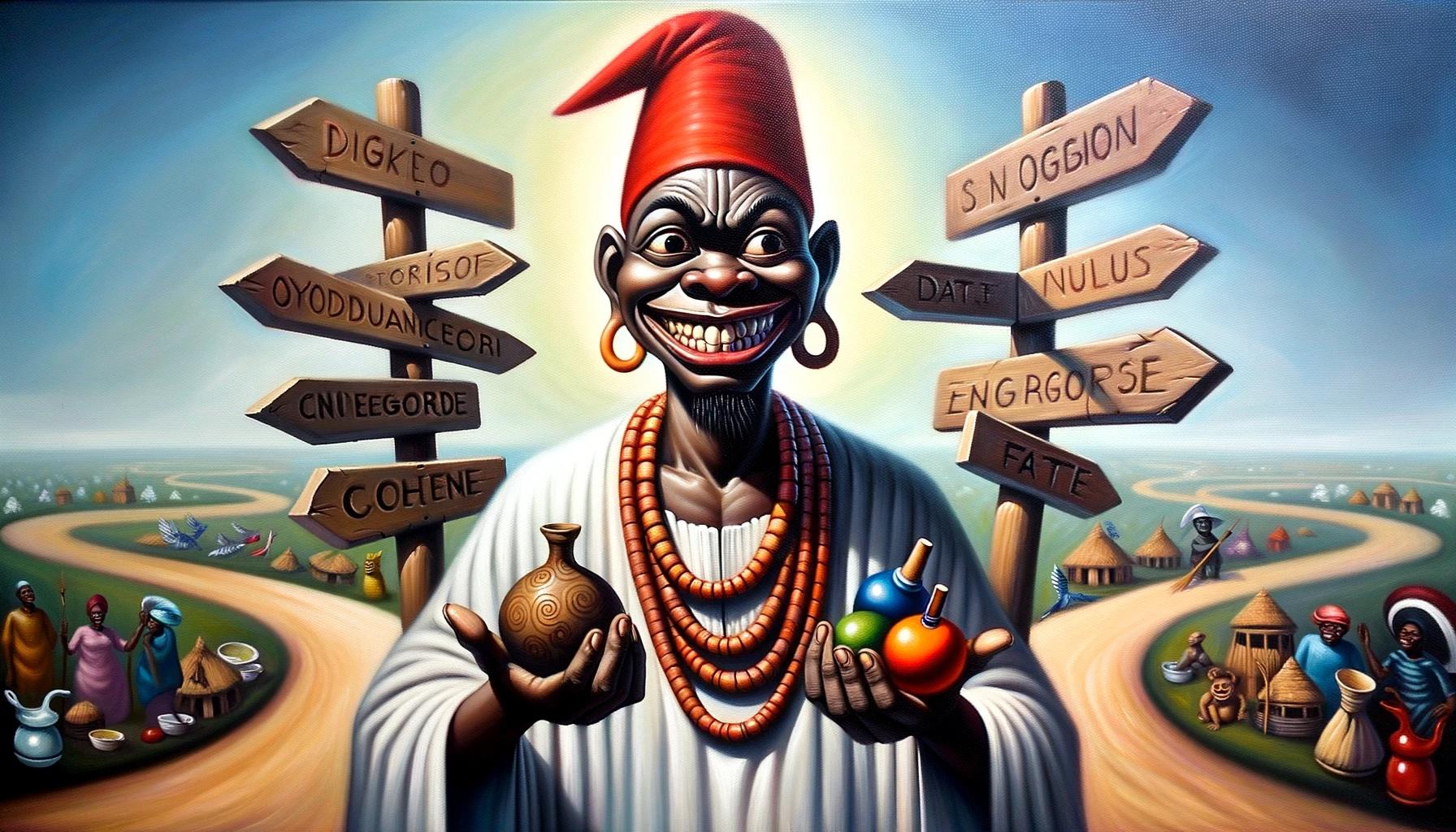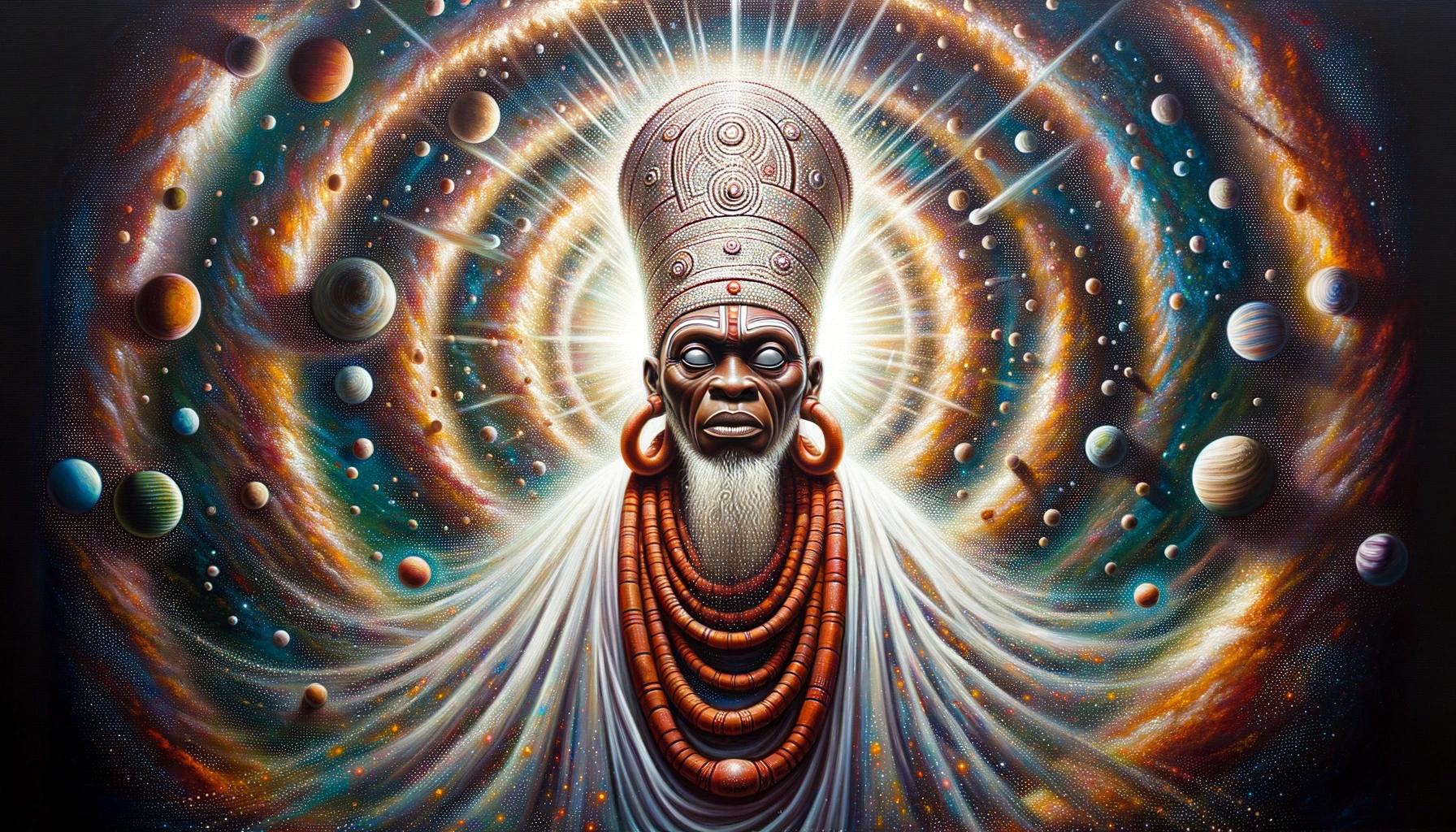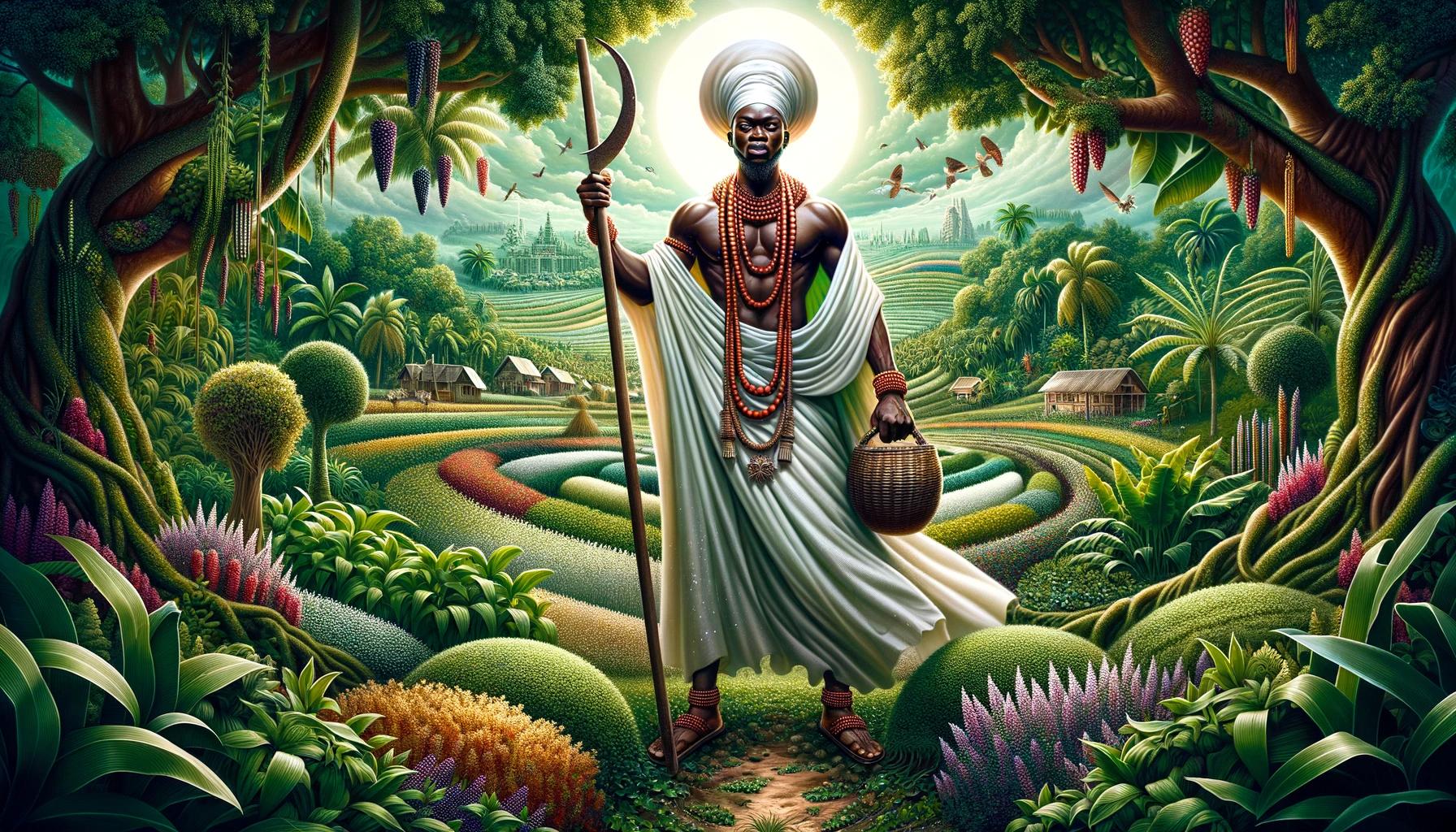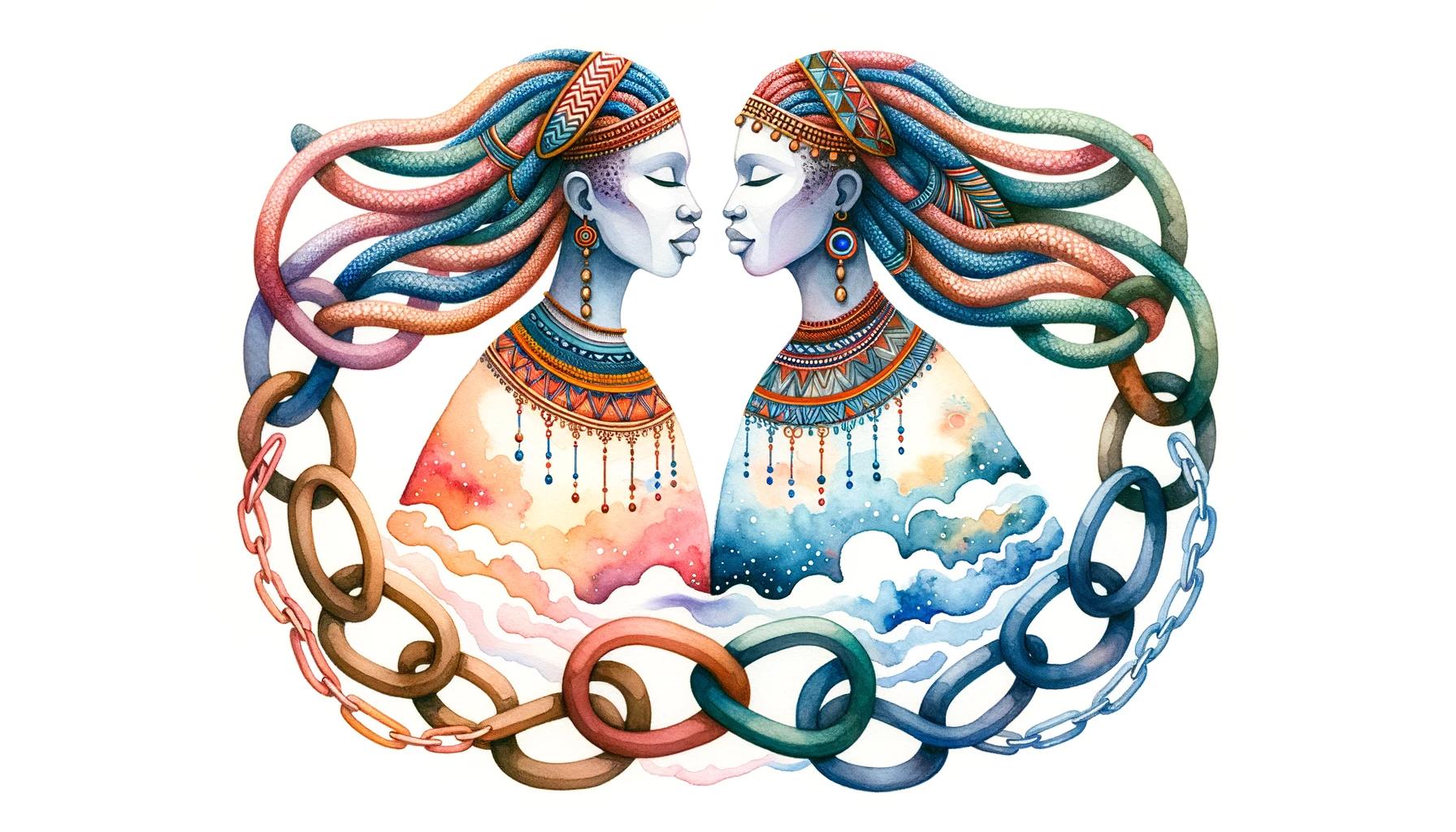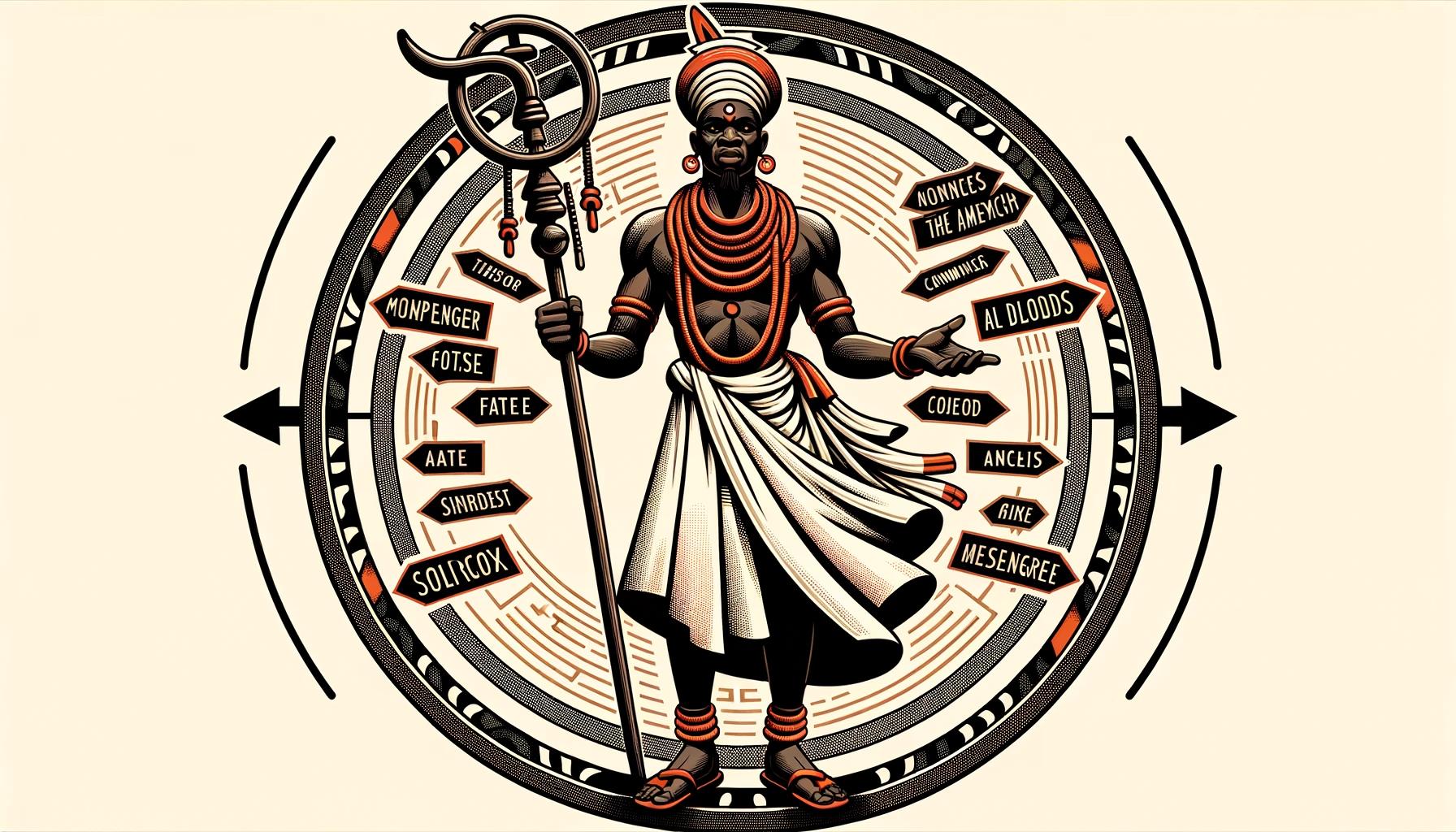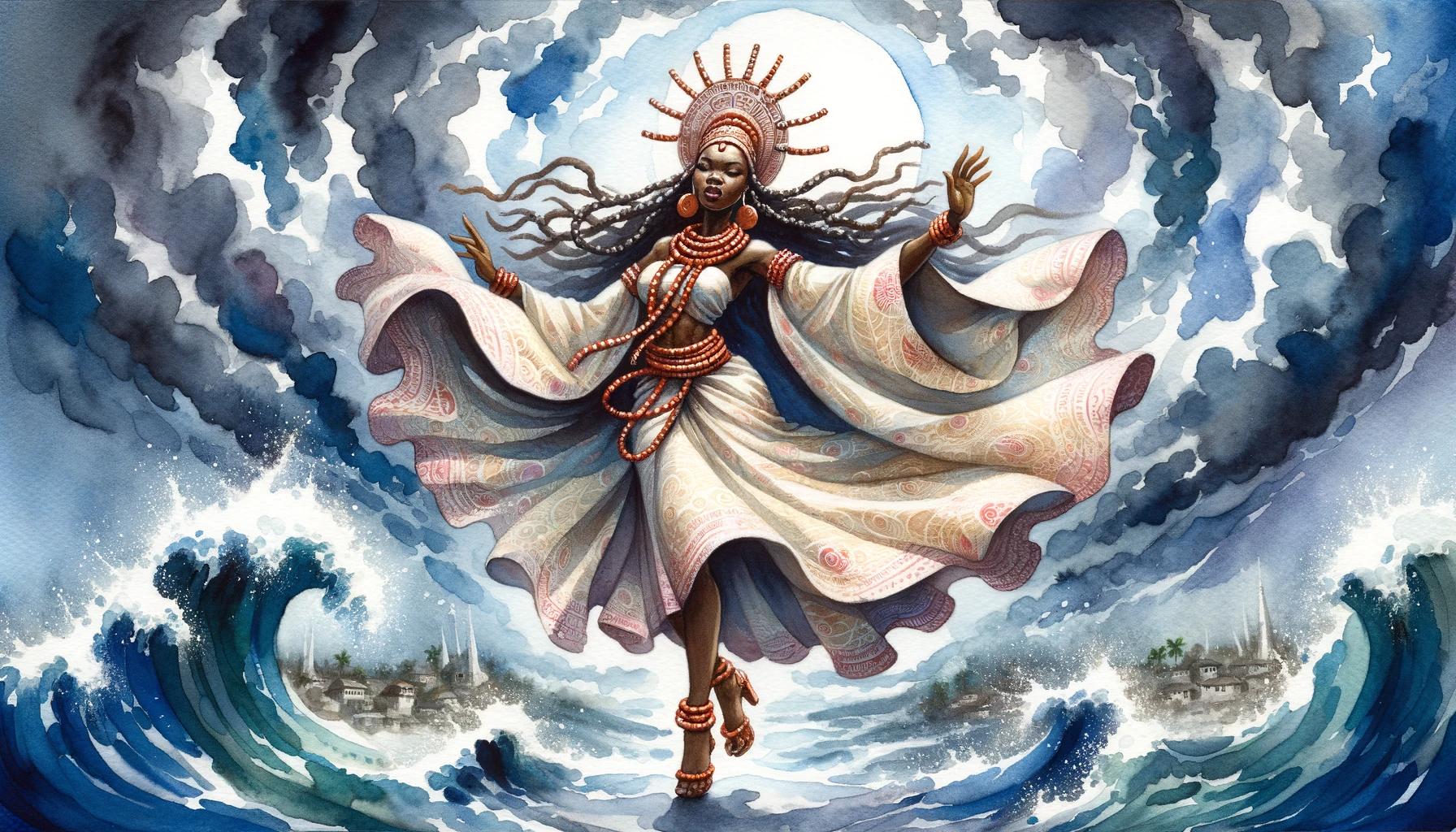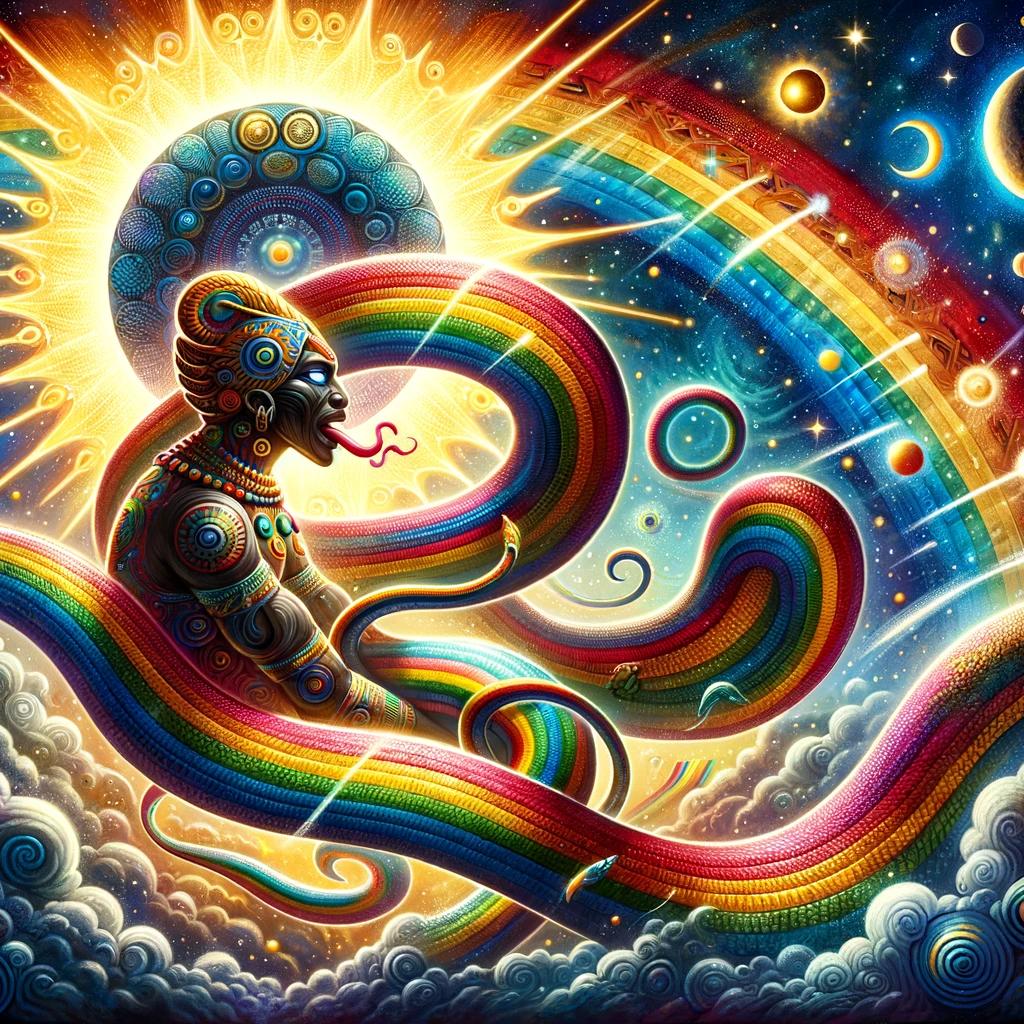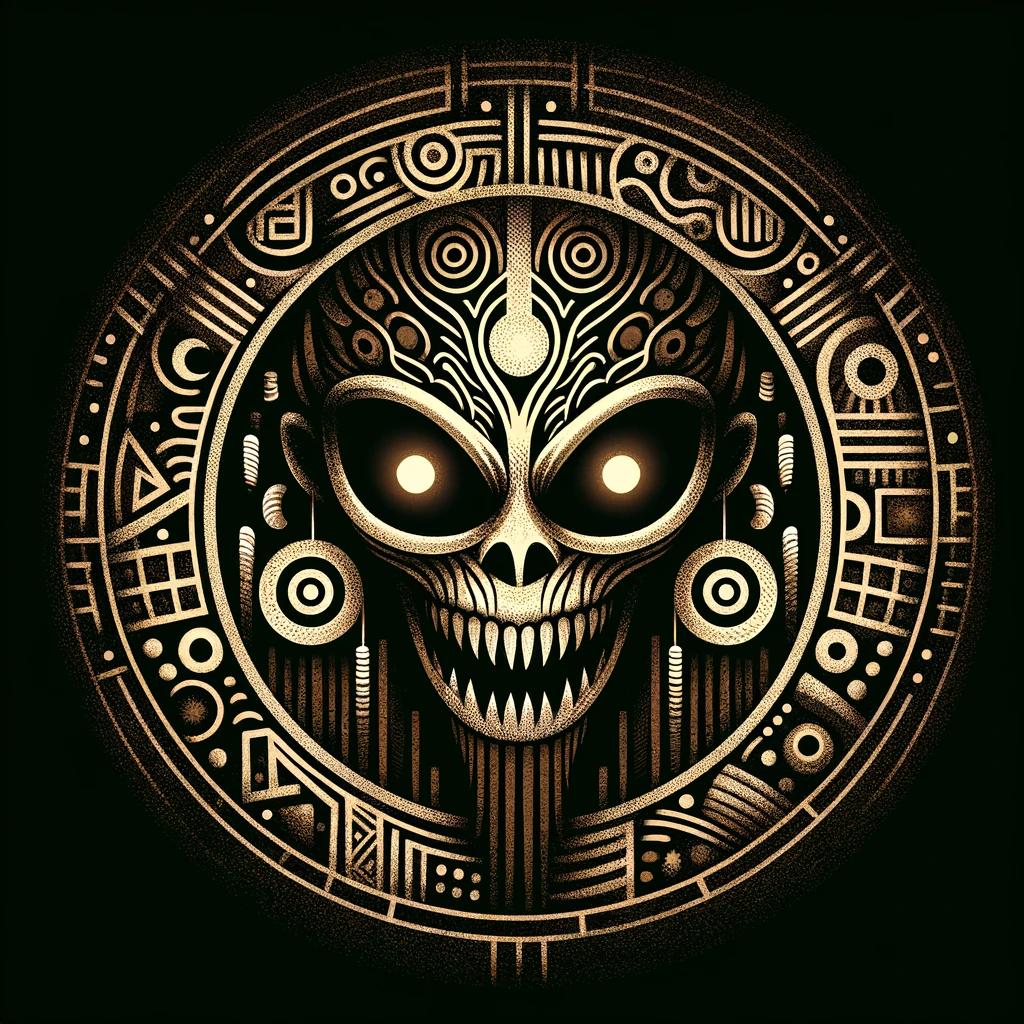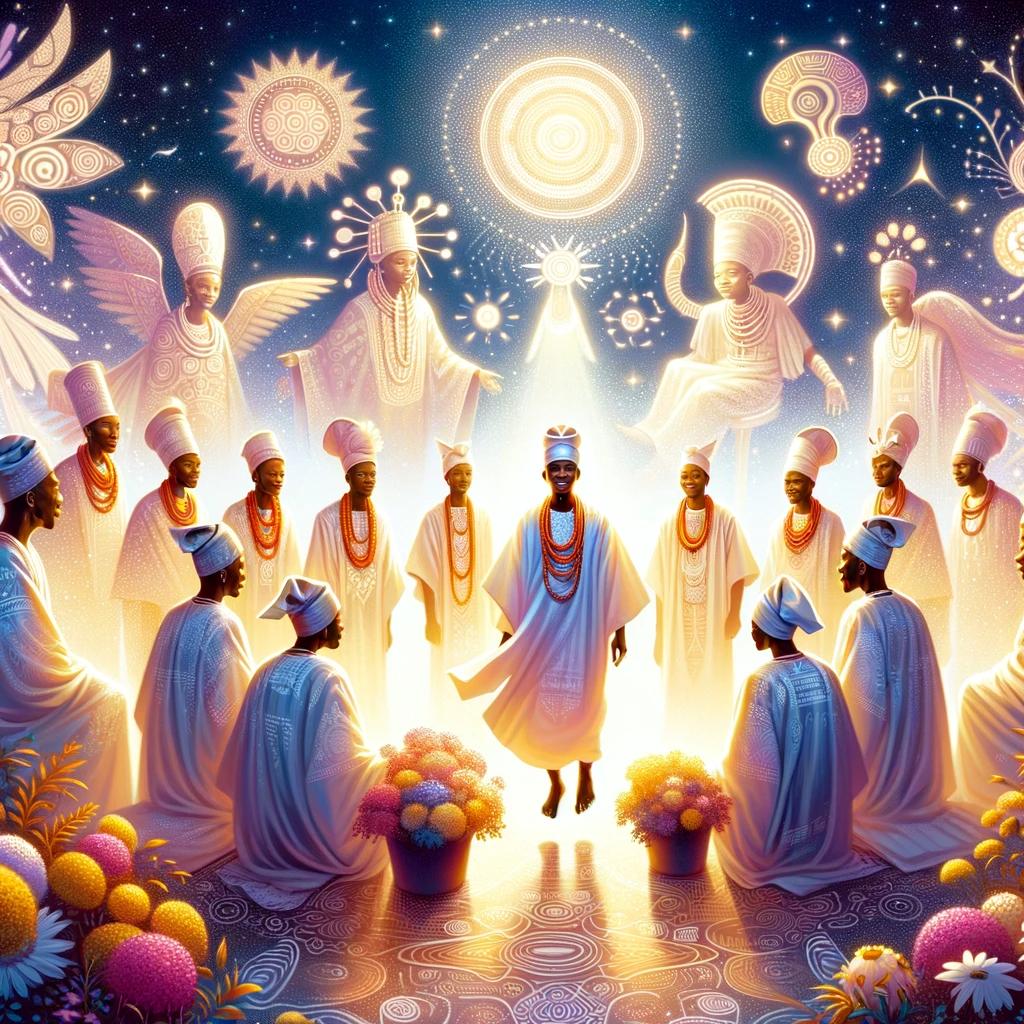‘Who is Eshu, the African God? Exploring the Origins and Significance’
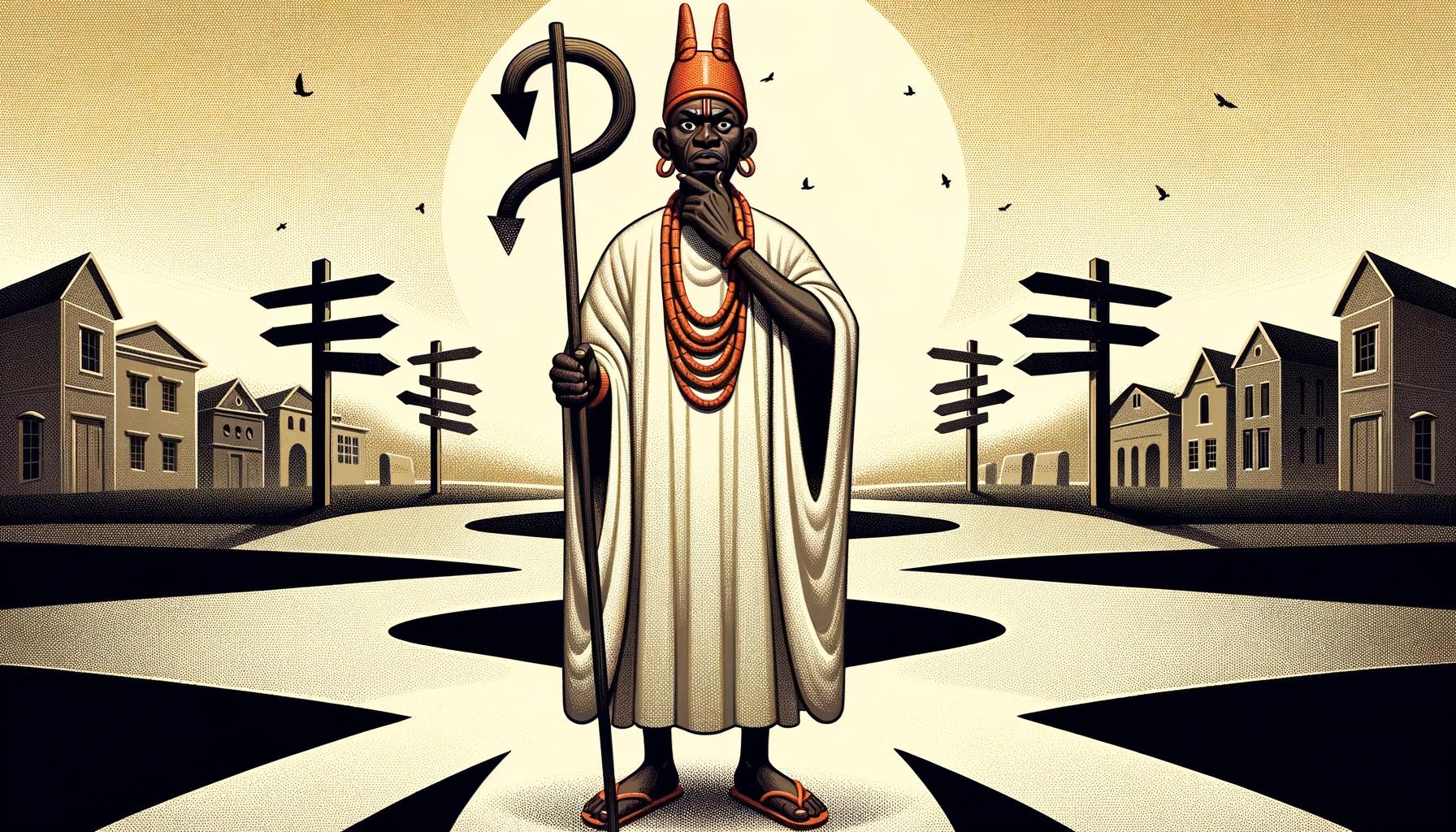
Ifá, a Yoruba system of divination and religion, holds significant connections to Eshu, the African god. Ifá practitioners, known as babalawos or Iyanifas, utilize a complex divination chain and sacred palm or cola nuts to access spiritual knowledge.
Eshu, often portrayed as a messenger and trickster, plays a crucial role within Yoruba mythology and holds cultural significance in African religion. This article explores the origins, symbolism, and practices associated with Eshu, shedding light on its importance in Yoruba culture.
Refer to the following sections for a comprehensive understanding of who Eshu, the African god, truly is.
Understanding Ifá and its Connection to Eshu
In order to gain a comprehensive understanding of Eshu, it is crucial to explore the system of divination and religion known as Ifá. This intricate spiritual practice has deep roots in Yoruba culture, with strong connections to Eshu and other deities.
Exploring the Ifá System of Divination and Religion
Ifá is not just a divination system but also a religion practiced among the Yoruba communities in Africa and the African diaspora. It involves the veneration of various deities, with a central focus on Orunmila, the deity associated with wisdom and intellectual development.
Practitioners of Ifá, such as the babalawos or Iyanifas, are considered knowledgeable scholars akin to professors in classic university systems. They utilize various divination tools, including the sacred palm or cola nuts, as well as a unique chain of divination called Opele, to mathematically calculate the appropriate sign or Odù for each problem or situation.
Orunmila: The Deity Associated with Ifá and Wisdom
Orunmila, often referred to as the deity of wisdom and divination, holds paramount importance within the Ifá system. Believed to have founded Ifá in Ilé-Ifẹ̀, a significant city in ancient West Africa, Orunmila is attributed with spreading the practice to other regions.
With his immense wisdom and intellectual prowess, Orunmila is revered as the oracular deity who possesses profound knowledge of both scientific and metaphysical realms. His association with Ifá makes him a key figure in the understanding of Eshu’s role within Yoruba culture.
The Use of Odu Ifá as a Spiritual Knowledge Base
At the core of Ifá lies the Odu Ifá, a vast body of literature consisting of 256 volumes or signs. These texts serve as the fundamental spiritual knowledge base for practitioners and contain invaluable information about various aspects of life and the universe.
Odu Ifá plays a significant role in understanding Eshu, as it reveals mythological stories, symbolism, and cultural practices associated with this deity. It serves as a guide for Ifá practitioners to access spiritual and metaphysical insights, further deepening their connection with Eshu.
Unveiling the Mysteries of Eshu
In this section, we delve into the intriguing aspects of Eshu, the African god. We explore the mythological stories and symbolism surrounding Eshu, his role as a messenger and trickster, and the cultural significance and practices associated with him.
Mythological Stories and Symbolism Surrounding Eshu
Eshu is surrounded by fascinating mythological stories and carries deep symbolism in Yoruba culture. These stories often depict Eshu as a mischievous deity, playing tricks and testing humanity’s morals. His symbolism represents the duality of human nature, the balance between chaos and order.
Exploring the Role of Eshu as a Messenger and Trickster
Eshu plays a vital role as a messenger between the spiritual and human realms. As a trickster, he challenges individuals to confront their inner conflicts, teaching lessons of accountability and personal growth.
By disrupting established norms, Eshu encourages innovation and change.
Cultural Significance and Practices Associated with Eshu
Eshu holds significant cultural importance in Yoruba religion. He is often honored with offerings and rituals to ensure his protection and guidance. Devotees consult Eshu for wisdom, guidance, and protection, seeking his assistance in navigating life’s challenges.
The practices associated with Eshu vary, but they commonly involve prayers, offerings, and acknowledging his presence through symbolic representations.
Frequently Asked Questions about Eshu
Here, we address some common questions about Eshu, shedding light on various aspects of this influential African deity. Explore the significance of Eshu in African religion, its relation to other African deities, the different representations of Eshu, and the worship practices and celebrations associated with Eshu in Yoruba culture.
Who is Eshu and What is His Importance in African Religion?
Eshu is a prominent deity in Yoruba religion and plays a vital role in African spirituality. As a messenger and trickster figure, Eshu acts as a mediator between humans and the divine realm.
His importance lies in his ability to communicate messages, bring blessings or misfortunes, and bridge the gap between the physical and spiritual worlds.
How Does Eshu Relate to Other African Deities?
Eshu maintains connections with various African deities across different cultures.
In Afro-Caribbean religions like Santería and Vodou, Eshu is associated with Papa Legba and Exu, respectively. These deities share similar attributes and serve as intermediaries between humans and the divine. Despite regional differences, the essence of Eshu remains consistent throughout these various pantheons.
What are the Different Representations of Eshu?
Eshu manifests in diverse forms and representations across Yoruba culture. With over 256 different paths, each known as Elegbara or Pataki, Eshu showcases a wide range of personalities and characteristics. These representations can vary in age, gender, attire, and demeanor, reflecting the multifaceted nature of Eshu as a god of transitions, choices, and opportunities.
How is Eshu Worshiped and Celebrated in Yoruba Culture?
Worship and celebration of Eshu form an integral part of Yoruba religious practices. Devotees honor Eshu through prayers, offerings, and rituals, seeking his guidance, protection, and blessings. Eshu is often depicted with offerings of palm oil, animal sacrifices, and special rituals involving incantations and dances.
Festivals like Eshu’s Day provide opportunities for the community to come together and express their devotion.

